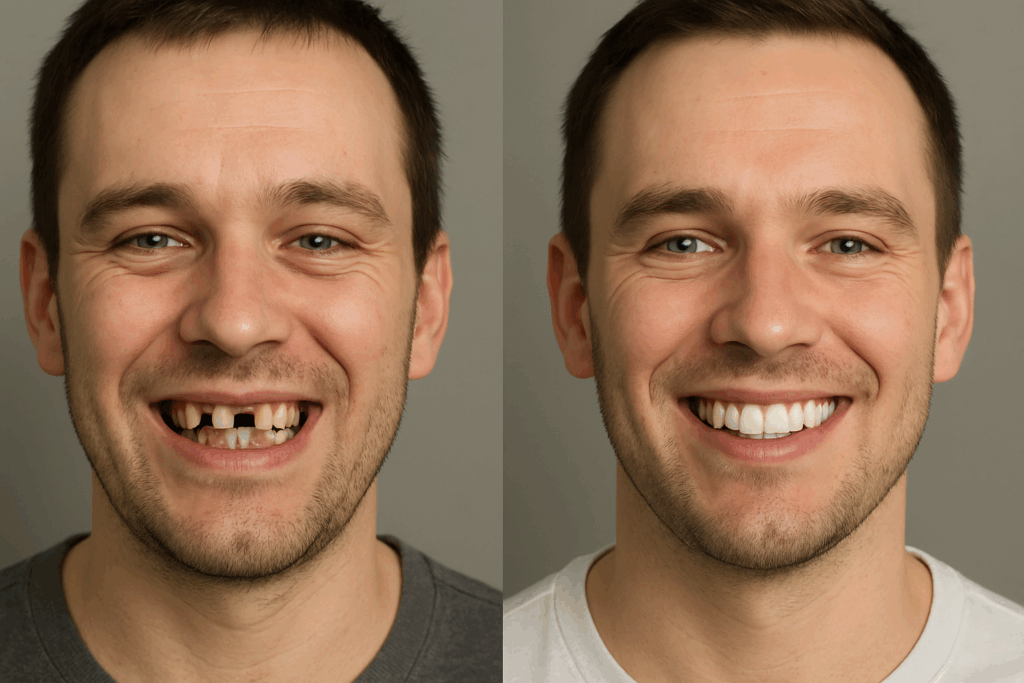Dental implants have become one of the most effective and long-lasting solutions for replacing missing or damaged teeth. Unlike dentures or bridges, implants are designed to look, feel, and function like natural teeth. But while dental implants offer many benefits, they’re not the right choice for everyone. Understanding how implants work and whether you’re a good candidate is the first step toward a healthier smile.
What Are Dental Implants?
Dental implants are small titanium posts that are surgically placed into your jawbone to act as artificial tooth roots. Once the implant fuses with the bone—a process called osseointegration—a crown (artificial tooth) is placed on top. This creates a stable, durable, and natural-looking replacement that can last decades with proper care.
Implants can be used to replace a single tooth, multiple teeth, or even support a full set of dentures.
Benefits of Dental Implants
- Natural Appearance: Implants mimic the look and feel of real teeth.
- Durability: With proper care, they can last 20 years or more.
- Improved Function: You can eat, speak, and smile with confidence.
- Bone Preservation: Implants stimulate the jawbone, helping to prevent bone loss over time.
- No Impact on Adjacent Teeth: Unlike bridges, implants don’t require grinding down neighboring teeth.
Are You a Good Candidate?
Most healthy adults with missing or severely damaged teeth may be candidates for dental implants, but several factors can affect your eligibility:
1. Sufficient Bone Density
A strong jawbone is essential to support the implant. If you’ve been missing teeth for a while, your bone may have deteriorated. In such cases, a bone graft might be needed before implants can be placed.
2. Healthy Gums
Gum disease can threaten the success of an implant. If you have active periodontal issues, your dentist may recommend treatment to improve gum health first.
3. Good Oral Hygiene
Candidates should be committed to maintaining good oral hygiene. Brushing, flossing, and regular dental visits are key to long-term implant success.
4. Non-Smoker (or Willing to Quit)
Smoking slows down healing and increases the risk of implant failure. While not an absolute disqualifier, quitting smoking is highly recommended before undergoing the procedure.
5. No Uncontrolled Chronic Conditions
Conditions like uncontrolled diabetes, immune disorders, or recent cancer treatment can interfere with healing. Your dentist will evaluate your medical history to determine if implants are safe for you.
What If You’re Not a Candidate?
Even if you’re not currently a good candidate, that doesn’t mean implants are off the table. Many patients undergo preparatory procedures such as bone grafts, sinus lifts, or periodontal therapy that eventually make implants a viable option.
Final Thoughts
Dental implants are a powerful tool in modern dentistry, offering a permanent and natural-looking solution for missing teeth. If you’re considering implants, the best first step is a consultation with a qualified dentist or oral surgeon. They’ll evaluate your oral and overall health, discuss your goals, and help you decide if implants are right for you.
A beautiful, functional smile could be closer than you think.

